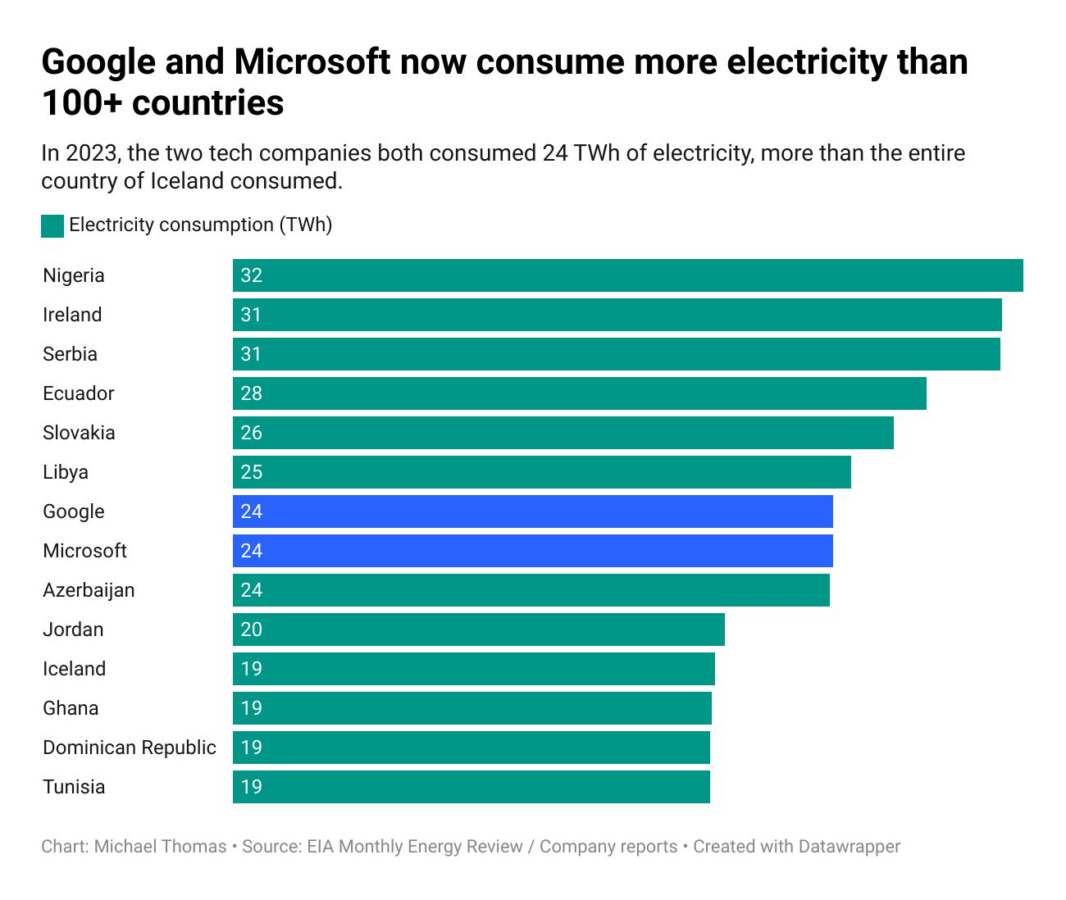Google, Microsoft make more money & spend more electricity energy than many countries
The demand for data centers is no joke
2 min. read
Published on
Read our disclosure page to find out how can you help MSPoweruser sustain the editorial team Read more
Key notes
- Google and Microsoft data centers used 24 TWh of electricity in 2023, surpassing several countries.
- AI operations have increased emissions: Google’s by 48% and Microsoft’s by 30%.
- Both aim for major sustainability goals by 2030.

The cost of developing an AI is expensive, even running data centers. Google and Microsoft, two of the most impactful players in the cloud & AI market at the moment, have had their fair share of competition in recent years as the AI race heats up.
In an analysis done by Michael Thomas, quoting data from the EIA Monthly Energy Review, it says that Microsoft and Google data centers consumed 24 TWh in electricity consumption throughout the entire 2023. That’s more than countries like Iceland, Azerbaijan, Ghana, and others.

The demand for data centers is no joke, even more so as companies are moving to the cloud. Google, for example, reported earlier that it’s seeing a 48% rise in greenhouse gas emissions, largely due to the energy demands of its data centers supporting AI operations. According to another report (via CNBC), Microsoft’s total carbon emissions have also risen nearly 30% since 2020 due to these data centers.
AI technologies like OpenAI’s ChatGPT or Google Gemini are increasing greenhouse gas emissions, with one study indicating that each query on OpenAI’s chatbot requires almost ten times the electricity of a Google Search query.
These companies sure do make more money than some countries, though. There’s no doubt about that. Google made about $305.6 billion in revenue and Microsoft posted $211.9 billion in revenue that year—these numbers, non-combined, are more than the GDPs of countries like Slovakia, Iceland, Azerbaijan, and others.
But, is the humane and environmental consequence of these AI advancements worth it, when our planet becomes another red-hot spinning ball that becomes more inhabitable every year or decade?
Still, both Google and Microsoft have done their bit in making these efforts as environmentally friendly as possible. Both companies are marching towards 2030 with clear goals: Google, which has been carbon neutral since 2007, and Microsoft are aiming for carbon negativity by that year.








User forum
1 messages